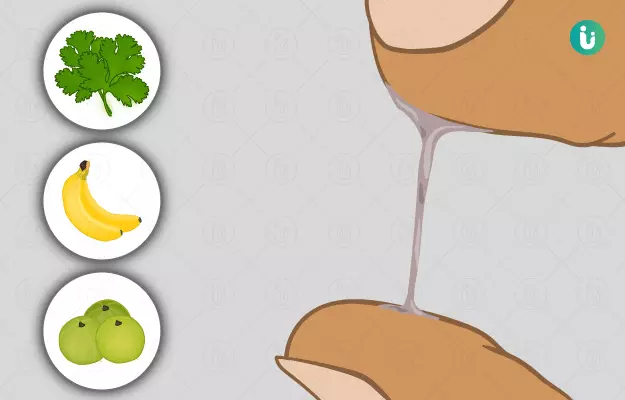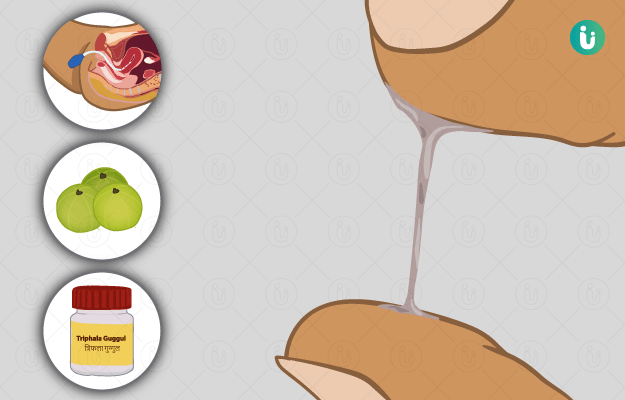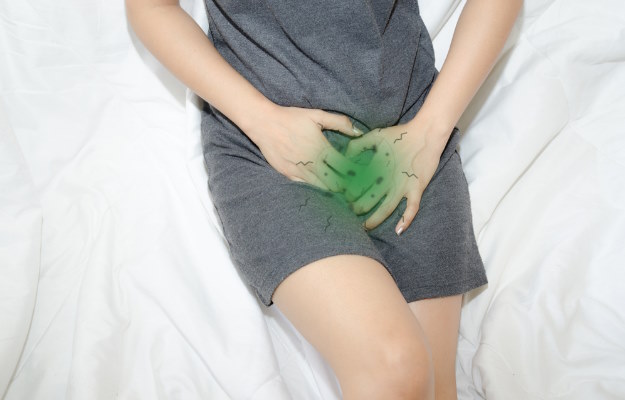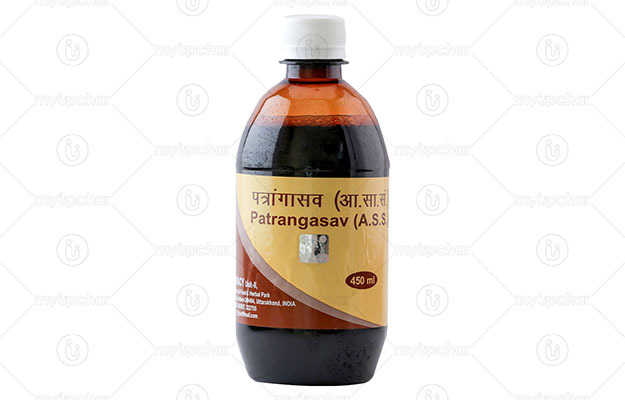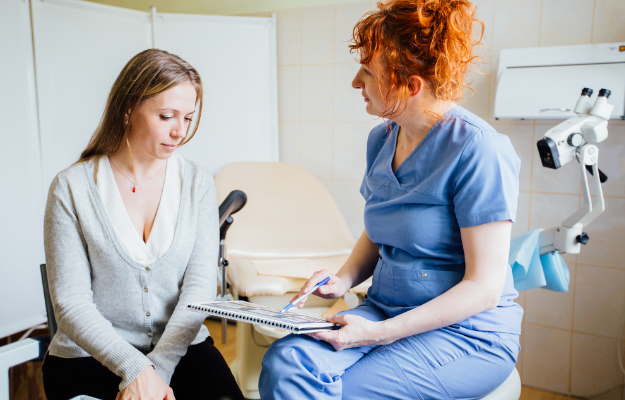Leucorrhoea refers to a whitish, odourless discharge from the vagina, which ranges in viscosity from being thick to watery. It is mostly regarded as physiological but may also be a reflection of an underlying condition or infection when in excess.
Leucorrhoea is most commonly noted in women of the reproductive age group, particularly those who are sexually active. Leucorrhoea is also quite common in puberty, while the sexual characteristics of the woman are developing and maturing. Other than this, excessive vaginal discharge is considered to be physiological during sexual arousal and pregnancy. Some women may even experience more discharge before the beginning of their menstrual cycle.
Leucorrhoea is one of the primary complaints when visiting a gynaecologist and has been ascertained as being a reason for more than 25% gynae visits. What you need to know is whether your discharge is normal or pathological.
Usually, a coloured, yellow or green, or a foul-smelling discharge is indicative of an infection or multiple infections with the possible causes being a bacteria, fungi or a parasite. Other pathological factors are the presence of foreign bodies in the vagina, detergents and herbal preparations. So, you must steer clear of these. Sometimes, excessive vaginal discharge may also be due to cancerous activity.
It is highly recommended that you visit your doctor to determine the underlying cause. Once infections and other pathologies are ruled out, healthy women can manage leucorrhoea with the help of simple remedies.
-
Home remedies and tips for leucorrhoea
- Keep your vagina clean to prevent leucorrhoea (excessive vaginal discharge)
- Wipe your vagina to prevent leucorrhoea
- Avoid douching to prevent leucorrhoea
- Avoid the use of scented grooming products to prevent leucorrhoea
- Avoid a bubble bath to prevent leucorrhoea
- Wear clean, cotton undergarments to prevent leucorrhoea
- Practice safe sex to avoid leucorrhoea
- Drink more water to avoid leucorrhoea
- Use panty liners to reduce discomfort due to leucorrhoea
- Lifestyle changes to reduce leucorrhoea
- Takeaway
Home remedies and tips for leucorrhoea
Now you do understand the condition and know if your discharge is normal or requires you to see a doctor. The following home remedies will help to keep vaginal infections at bay and will be helpful in managing your concern if you belong to the former category. These can also be useful for women who recurrently suffer from infections but currently are disease-free. Why home remedies work is because excessive use of antibiotic agents causes drug resistance making it all the more difficult to manage the condition. Instead of popping antibiotics without a prior prescription, you can make use of some remedies and tips that work for all. Let’s have a look at the best of these tips:
Keep your vagina clean to prevent leucorrhoea (excessive vaginal discharge)
Keeping your vagina clean is the key to avoiding any possible infections. Regular cleaning of the vagina will help to wipe off bacteria, virus or other agents, which would otherwise be colonising in your female parts and working hard to give you an infection.
Although vagina is a self-cleaning organ, it is advisable that you wash the external of your genitals with the help of a mild non-scented cleanser and water. You must make the use of a mild agent and steer clear from the use of detergents and other hard agents, which could worsen your concern.
Also, make sure that the water is cold and clean. Warm water may just raise the temperature of the vagina, which would harbour the growth of infectious agents. Needless to say, ensure that your hands are clean and you just wash the externals of your genitals proceeding no further.
While you are washing your woman parts, you need to be very careful, especially of the motion of your hands. Take care that your sweeping action is from the front to the behind and not the opposite. This will help to avoid vaginal infections and UTI. Also, take care that you wash your hands before cleaning your vagina, particularly if you just touched or washed your behind.
(Read more: Vaginal health)
Wipe your vagina to prevent leucorrhoea
Gently wiping your vagina will help to remove the present discharge, which will keep you dry. A dry vaginal environment is hostile to the growth of infectious agents. Wiping will additionally help to eliminate bacteria and other infectious agents.
Wiping is a preferred method over washing but you still need to take care of the motion, keeping it from the front to the back.
Use a soft cloth instead of making the use of a commercial perfumed wipe. This will help to maintain the vaginal environment and pH.
One particular time when you must wipe your vagina is before and after having sexual intercourse. This will clean off any bacteria transferred during the act of sexual intercourse.
Wiping before ensures that bacteria contained within the discharge do not enter deep within your vaginal tract and cause infections.
Avoid douching to prevent leucorrhoea
Douching refers to the practice of cleaning out the vagina with the help of water or other fluids. While you must wash the externals of your genitals, it is highly inadvisable to wash the inside of your vaginal canal. This can alter the normal pH of your vagina and will be a cause of infection.
Despite this, most women are known to vigorously douche, especially after or during their menstrual cycle and following sexual intercourse. It is important to note that a change in pH can alter your microbial flora and lead to infections, which will further increase vaginal discharge. So, you must stay away from this habit.
Avoid the use of scented grooming products to prevent leucorrhoea
There are a number of cosmetic products coming up each day, which offer you a variety of washes to make your vagina smell better. It is important to not fall for these, and instead, take corrective measures to improve your vaginal health. You must know that an odorous vaginal discharge is not physiological, especially if the smell is quite pungent or fishy. So, make sure to see your doctor.
The products to avoid include vaginal creams, lotions and oils, deodorant sprays and soaps.
If you experience normal vaginal discharge, which is essentially colourless and odourless, there is no need for you to be embarrassed. Steer clear from any medicated creams and lotions claiming to cure you of the problem.
Avoid a bubble bath to prevent leucorrhoea
Bubble bath may be a perfect way to relax after a tiring day, but is it vagina friendly? No. You ask why? Well, it has some harsh soaps, detergents, scented products, which are all detrimental to your vaginal health and can be a cause of vaginal infections. So, it is time you find another destressing activity.
Wear clean, cotton undergarments to prevent leucorrhoea
Maintaining a clean vagina is the key to avoid vaginal infections. This will help in avoiding excessive vaginal discharge.
So, how do you keep your vagina free from infections if you are not supposed to scrub it each day with cleansing agents? The answer is quite simple.
Wear clean underwears. Make sure you change them each day because unclean underwears and a wet environment make for a good home for infectious bacteria. If you suffer from excessive discharge, you would require changing it more often. However often you do, just make sure that the environment down there is clean and dry.
Maybe this would require you shop for more. While you are on your shopping spree, buy the right ones. Select cotton or other breathable fabrics, which are comfortable. Irritation of the vagina can cause more vaginal discharge, which you sure do not want. Avoid the use of synthetic undergarments, thongs, fancy lingerie or anything that can be irritating to your vagina. Also, make sure that your underwears are a perfect fit and are not too tight since this can also irritate your vagina and cause infections.
Practice safe sex to avoid leucorrhoea
Excessive vaginal discharge could be a symptom of being affected with STDs or sexually transmitted diseases. This can be avoided by the practice of safe sex. Getting yourself and your partner tested, making the use of condoms and being monogamous will help to avoid STDs.
Studies have closely linked vaginal discharge and infections to sexual intercourse. These studies report that sexually active women who make the use of condoms for the purpose of contraception experience lesser vaginal discharge due to microbial infections. Condoms help to avoid infections with gram-positive cocci, Candida and gonorrhoea.
Yet understand the importance of using condoms? If not, you must know that researchers have found that the use of condoms significantly helps to reduce the chances of being infected by Candida, which is quite commonly associated with an abnormal vaginal discharge.
While you must make the use of condoms, there sure are some practices you should avoid when it comes to sexual activity. The first thing that you must keep in mind is that you need to avoid washing your vagina after sexual activity. This includes washing with plain water. It is imperative that you will experience more vaginal discharge after having sexual intercourse. Sexual activity and arousal increase vaginal discharge, but, washing increases the risk of infections. So, instead of washing, you are advised to wipe your genital areas with a clean cotton pad after sexual intercourse.
Stay away from using spermicidal contraceptives and diaphragms. Instead, use condoms.
Drink more water to avoid leucorrhoea
Drinking more water will allow to flush out infectious bacteria, which would otherwise cause an increased vaginal discharge. Drinking 2 to 3 litres of water daily and urinating whenever the need be will help in avoiding infections. Holding urine too long causes the retention of these bacteria and favours their pathogenesis.
You can also have lemon water since lemon is a diuretic and would increase urine excretion flushing out of the pathogenic bacteria.
Use panty liners to reduce discomfort due to leucorrhoea
Is excessive leucorrhoea becoming a problem for you? Quite obviously, you can’t change your panties every hour or rush to the washroom. So, what are you supposed to do?
Panty liners are the best idea in such situations. They absorb excess discharge, keeping you dry. It will not just help in improving comfort but will also help to keep vaginal infections at bay, which could be caused due to a wet environment.
Pantyliners are commercially available in different brands and seem like a soft pad, which aids to absorb your discharge.
Another benefit of using panty liners is that it could save you from the wrath of an unexpected period.
Lifestyle changes to reduce leucorrhoea
What is there that cannot be managed with a balanced diet and a healthy lifestyle? We guess nothing.
For a healthy vagina, it is recommended that you eat a nutritious diet including all the essential components. Do not forget to eat some yoghurt since experts say that it is conducive to your vaginal health. Also, eating fresh fruits and vegetables will help to manage excessive discharge and keep vaginal odour at bay.
Some say that your vagina smells like what you eat. So, eating pleasant smelling fruits like mangoes, pomegranates and berries may help you smell good down there.
Similarly, you must avoid smelly foods, alcohol and smoking to prevent excessive discharge and odour.
As much as diet is important, it is also essential that you avoid stress to prevent excessive vaginal discharge. Yoga, meditation and exercise are some ways of doing this. A simple activity like brisk walking for half an hour also goes a long way in managing stress.
Takeaway
All women experience colourless, watery vaginal discharge at some point. If it is not too much to worry about. If you smell an odour or notice a characteristic colour with your discharge, this is a warning sign of an infection and you must see your doctor. Nevertheless, some lifestyle habits and vaginal care will help to keep infections and other complaints at bay, and will also help to manage excessive discharge.
Find Ayurvedic Doctor in cities
Doctors for Leucorrhoea home remedies

Dr. Megha Sugandh
Ayurveda
6 Years of Experience

Dr. Nadeem
Ayurveda
3 Years of Experience

Dr.Ashok Pipaliya
Ayurveda
12 Years of Experience

Dr. Harshaprabha Katole
Ayurveda
7 Years of Experience
References
- Centre for Health Informatics. [Internet]. National Institute of Health and Family Welfare Sailan-ur- Rahem (Leucorrhoea)
- Jaspreet Kaur and AK Kapoor. Perceptions and Knowledge about Leukorrhea in a Slum Dwelling South Asian Community. 2014 Mar; 8(1): 45–52. PMID: 24971133
- Ahmed Al-Badr and Ghadeer Al-Shaikh. Recurrent Urinary Tract Infections Management in Women. 2013 Aug; 13(3): 359–367. PMID: 23984019
- Office on women's health [internet]: US Department of Health and Human Services; Douching
- Centre for Health Informatics. [Internet]. National Institute of Health and Family Welfare Vaginal Candidiasis

